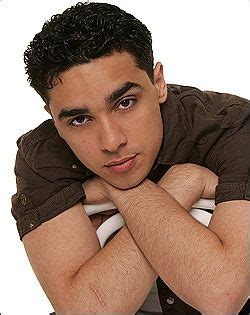A Quote by Phoebe Waller-Bridge
I just love any kind of language that can change the energy in a room. There are no limits for me, as long as it feels like it's being used in a particular way to garner or elicit a very particular reaction, so that you can then use that reaction later for something else. But when it's gratuitous language or physical exposure, then I get a bit like, "Oh! Put it away!"
Related Quotes
In Europe there's kind of a reaction to the European Union, kind of a move towards some kind of regionalization. It's more advanced in some regions than others, like in Spain for example. Catelan was repressed under Franco. People spoke it, but not publicly. It's now the language of Catelonia. The Basque language is being revived, not just the language but the culture, the folk music and everything else. So you're getting more diverse societies, and it's happening in Britain as well.
I'm not good at many things. But I really like songwriting, and I get a good reaction from it. There's not much that I do that causes a good reaction, so it feels like if I want to have good things happen, then I should do the things I'm good at. I mean, in all seriousness, I left school at 15. I'm unqualified to do anything else.
If a novel is written in a certain language with certain characters from a particular community and the story is very good or illuminating, then that work is translated into the language of another community - then they begin to see through their language that the problems described there are the same as the problems they are having. They can identify with characters from another language group.
I get really worried, like if they say, 'Take vocal lessons,' or something because it's kind of like I used to really love to draw when I was a kid and then I took like an art class - because everyone said, 'Oh, you're so good, you should take a class and maybe you can be really good,' and then I went to the class and then they showed me how to use a ruler and perspective and all this stuff and it totally made me not want to do it at all.
I used to go into pubs and people would want to pick a fight with me. I would hear a group of girls say: 'Oh look, there's Pat Cash.' And then one of them would come up to me and say, 'You think you're so good,' and throw a drink in my face. That kind of reaction from people was a bit of a shock initially, and you don't ever really get used to it.
For a while I felt like I spoke a different language than my immediate family. It wasn't until my teens that I met and got to know better members of my extended family (my cousin Alma in particular) that self- identified as artists. Something in us clicked together; in the way we thought, in the language we chose to use, in what we enjoyed. She helped me see and appreciate a lot both about myself and my loved ones.
The puzzle and conundrums of Emily Dickinson's poetry or The Cantos, by Ezra Pound, is infinitely pleasurable. Or Ronald Johnson's Ark. And the experience extends a whole lifetime. But the intensity of certain vocalized language affects our bodies in a particular way, and that further actualization propels me. The Greeks explored this; there were very particular meters used in making war, different ones for a love chant.
I think this is the way love feels to people like you and me. Threatening and dangerous. We have to be in control, and love takes that away. People like us… We can't tolerate vulnerability. But despite our best efforts, sooner or later love seems to catch up with us. And then…And then we fall apart.
There is something false in this search for a purely feminine writing style. Language, such as it is, is inherited from a masculine society, and it contains many male prejudices. We must rid language of all that. Still, a language is not something created artificially; the proletariat can't use a different language from the bourgeoisie, even if they use it differently, even if from time to time they invent something, technical words or even a kind of worker's slang, which can be very beautiful and very rich. Women can do that as well, enrich their language, clean it up.



































